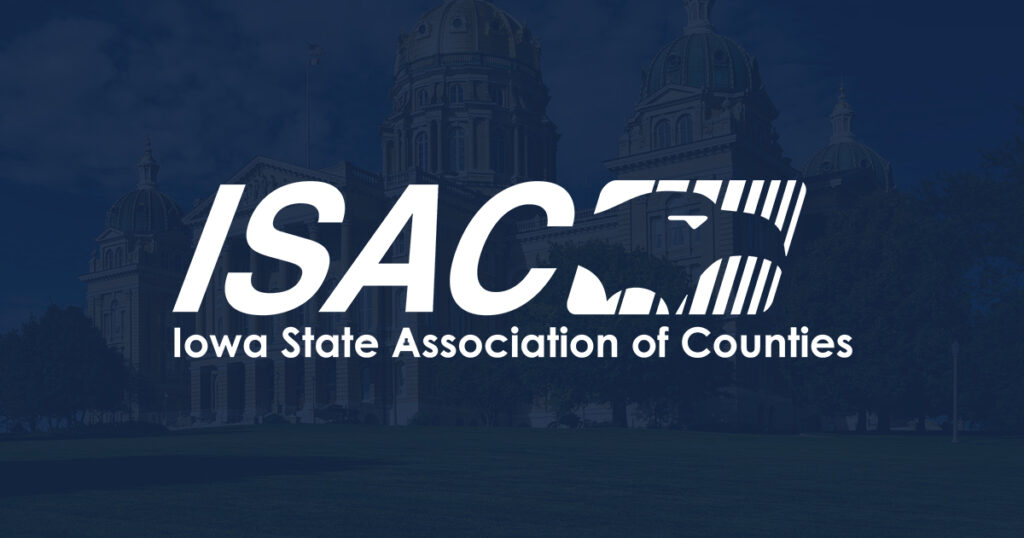What will happen to the local economy in 2022? Business Record readers give their forecasts

MICHAEL CRUMB Jan 27, 2022 | 8:55 pm
6 min read time
1,336 wordsBusiness Record Insider, Economic DevelopmentBusiness leaders’ outlook on the economy for 2022 varies greatly. While some cite concerns with the effects of the ongoing coronavirus pandemic, workforce shortages, supply chain disruptions and inflation, others are forecasting economic growth as long-delayed projects in construction move forward, populations continue to grow in several Central Iowa communities, and major placemaking initiatives continue to advance. The largest number of those responding indicated they expect to see slight improvement in the economy in 2022, while few said they expect to see dramatic improvement or dramatic regression in the economy this year.
We also gave the opportunity to share thoughts about how the economy might affect their industry and also what they feel is the biggest threat to Iowa’s economy. The 2022 results of the survey, in its 11th year, are not scientific but paint a picture of what other leaders think as you make plans for your own business.
Overall, the results showed there is much greater optimism heading into 2022 then at the same time a year ago when the majority, nearly 70%, forecast the local economy would regress. The percentage of those predicting economic decline dropped to about 25% for 2022, while about 55% said they expect the economy to improve, compared with just 23% in 2021.
Here’s some of what we heard.
– Michael Crumb, senior writer
Multiple communities experienced record growth numbers, and several large placemaking initiatives advanced. Our region continues to lay the foundation for a strong recovery, which we will continue to experience in 2022 and beyond.
Biggest threat: Attracting, retaining and skilling up talent.
Jay Byers, president and CEO, Greater Des Moines Partnership
5: Improve dramatically
Record backlog of orders coming into 2022. We see this level of business continuing on into 2023.
Biggest threat: Supply chain issues continue to challenge all manufacturing companies. Finding employees to staff our growing company.
David Zrostlik, president, Stellar Industries Inc.
5: Improve dramatically
Tax receipts will increase.
Biggest threat: Republicans continuing their war on women and culture.
Claire Celsi, senator, Iowa Senate
4: Improve slightly
People have to stay healthy. Iowa’s economy has been excellent, so no downturn for me.
Biggest threat: Inflation and high rent limiting spending in lower-income households.
Aaron Heffernan, physical therapist, UnityPoint
4: Improve slightly
As pandemic era safety net programs end, the population we provide assistance to will grow in a big and immediate way.
Biggest threat: With as divided as we are politically right now, I expect some seriously divisive issues to be pushed into the 2022 campaigns, which could … turn off businesses looking for a new location.
Matt Unger, CEO, Des Moines Area Religious Council
4: Improve slightly
There is still room for growth as people’s mobility improves after the ups and downs of the pandemic.
Biggest threat: Workforce. We need more people to live in Iowa.
Kirk Tyler, chairman, Atlantic Coca-Cola Bottling Co.
4: Improve slightly
With inflation looming, prices on consumer goods will increase, impacting our customers’ ability to spend. They will cut back on purchases that are not critical to their family.
Biggest threat: The continued uncertainty of the COVID-19 pandemic and how business responds to it. Businesses need to adapt and grow in this new environment in order to keep our economy strong.
Georgia Van Gundy, executive vice president, chief administrative officer, chief customer officer, Hy-Vee Inc.
Biggest threat: Pressure from inflation, health care and child care costs continue to stress the everyday consumer. Wages have not kept pace with the increased cost of living.
Jed Gammell, vice president of insurance, Lincoln Savings Bank
4: Improve slightly
I believe the Iowa economy will improve in 2022. That will also bring further pressure on workforce and supply chain issues.
Biggest threat: An ongoing lack of available workers.
Mike Ralston, president, Iowa Association of Business and Industry
4: Improve slightly
While pandemic impacts continue to challenge the economy, I believe more organizations will resume business travel to strengthen client relationships. Airport operations are already challenged with aging infrastructure and capacity constraints. As travel demand increases, the need and urgency of a new terminal to serve the state will be even greater.
Biggest threat: Labor shortage. Due to myriad reasons, including unaffordable child care options, skills gaps and antiquated employment policies, many are choosing not to return to work.
Kayla Kovarna, manager of communications, marketing and air service development, Des Moines Airport Authority
4: Improve slightly
The passage of the infrastructure bill in D.C. will impact the state in the form of jobs, new bridges, broadband and other areas that need maintenance and repairs.
Biggest threat: Maybe not next year, but very soon there is a changing of the guard on how to fuel vehicles in all sectors of agriculture. The demand for ethanol may decrease, and ethanol is a large portion of Iowa grain sales.
Mona Bond, president, Capitol Communications Inc.
Biggest threat: Those who see change as a challenge or lack the capacity to see taking a risk as a gamble that is necessary to launch Iowa onto the road of full recovery.
Tess Adams, CEO, PowerHouse Community Consulting
3: Stay about the same
We will see continued investment and support and should see membership and revenue rise.
Biggest threat: Workforce, supply chain issues; trade in Asia, Mexico, Canada, Africa and China, especially relating to Taiwan.
Drew Kamp, president and CEO, Council Bluffs Area Chamber of Commerce
3: Stay about the same
Our industry will continue to be strong as cities and other jurisdictions see inflows of federal funding for a variety of projects.
Biggest threat: Legislation that limits the ability of cities to regulate what’s best for them.
Charlie Cowell, urban planner, RDG Planning & Design
3: Stay about the same
Similar to 2021, unless we have more supply chain disruptions.
Biggest threat: Labor and material availability and inflation.
Jason Pitts, president, Skold Commercial Contracting Inc.
2: Regress slightly
I work in the behavioral health care field. I believe it will … be busier and more overwhelmed than it already is. We are truly at a breaking point.
Biggest threat: Lack of access to mental health services, jobs that pay a living wage, affordable child care and the Legislature’s refusal to address these.
Edward Wollner, peer recovery coach, UCS Healthcare
2: Regress slightly
With the slowing of federal stimulus money and tightening of federal reserve activity, I think our economy will slow down as employers and employees try to find balance.
Biggest threat: The available workforce is still the biggest issue.
Adam Obrecht, financial planner, AO Wealth Advisory
2: Regress slightly
There will be continued headwinds to new businesses from COVID, high commercial rents and workforce.
Biggest threat: Outflow of young talent.
Bernie Stone, president, Strategic Scouts Consulting
It will contract, but I am hoping that businesses will continue to see the value in planning strategically for the future.
Biggest threat: Rising interest rates, cost of goods and being slow to address changes in the business environment proactively enough.
Joe Benesh, president and CEO, Ingenuity Co.
1: Regress dramatically
Thinking of “retirees” as an industry … the feel-good “ideally we’ll eliminate all income taxes” informs my answer. The state has to get money from somewhere. It’s not likely the collective “we” will start taxing nonprofits like hospitals, etc., nor likely to raise taxes on for-profit corporations. It is, however, likely that sales taxes will increase as will local option taxes for special projects, and the items or transactions that will be taxed.
Biggest threat: As Congress continues to toute over-the-counter solutions to rising drug and other health care costs, Iowans will continue to pay increasing sales taxes.
Sharon Johnson, retired business owner, Johnson Group










